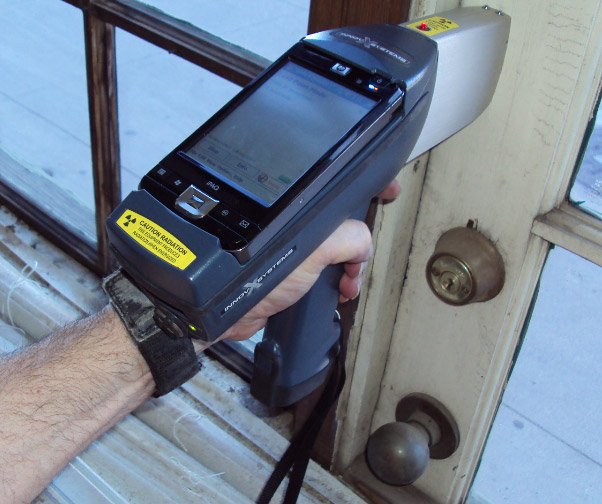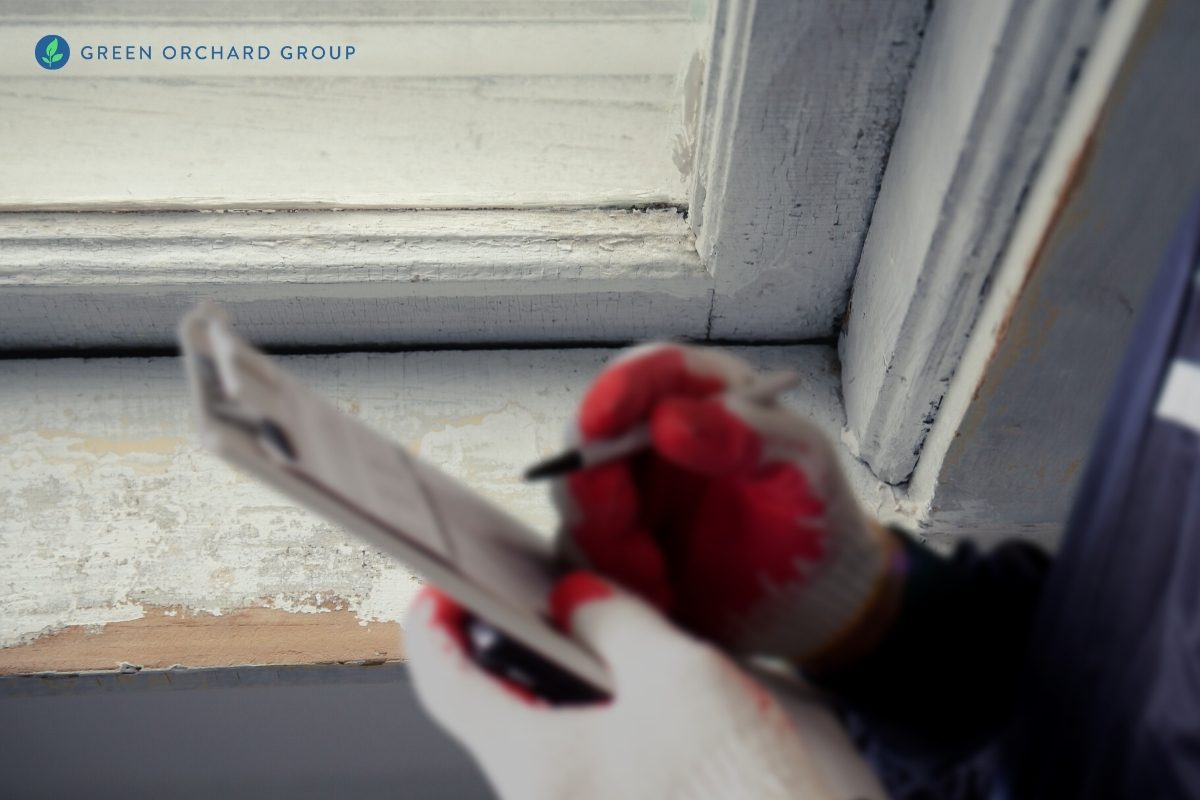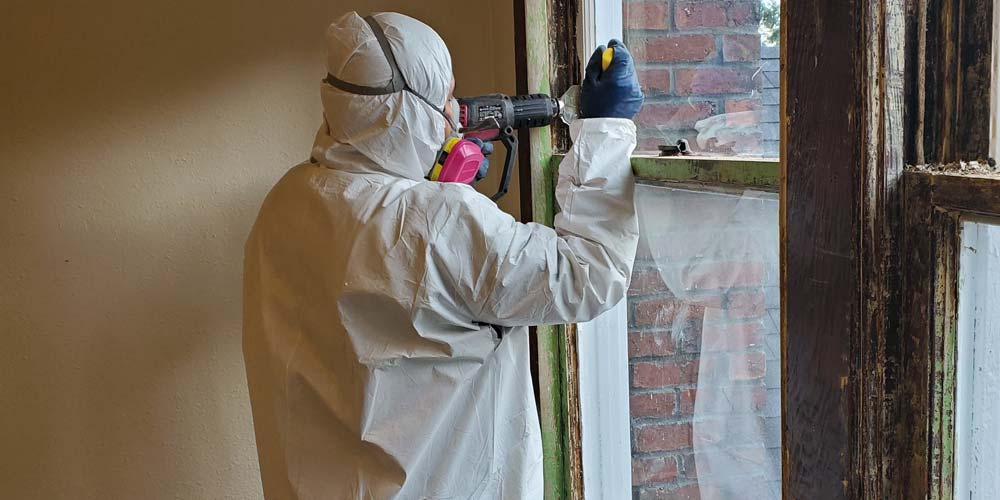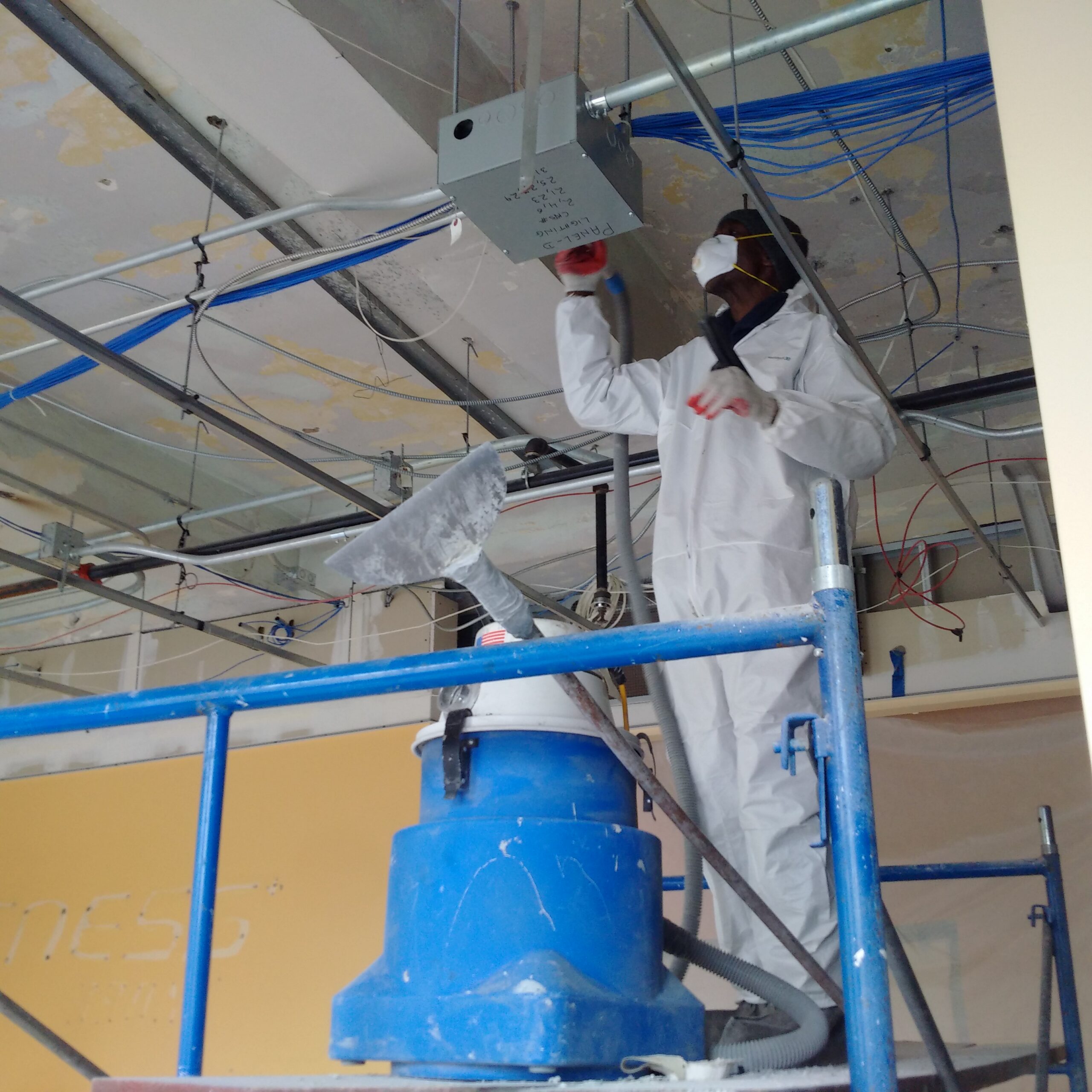Relied On Lead Paint Removal Company-- NYC's Premier Lead Reduction Service
Relied On Lead Paint Removal Company-- NYC's Premier Lead Reduction Service
Blog Article
Best Practices for Guaranteeing Safe and Detailed Lead Offense Abatement
Addressing lead infraction abatement calls for a multi-faceted method to make sure both security and conformity. Initial evaluations making use of advanced discovery approaches such as XRF analyzers set the stage for an exact understanding of contamination degrees. Incorporating appropriate control strategies, including closed obstacles and HEPA purification, coupled with using personal safety tools (PPE) for employees, forms the backbone of a safe procedure. Thorough cleanup protocols, featuring HEPA vacuuming and wet-wiping, are vital. It's the final clearance process, including extensive assessments and lab screening, that genuinely verifies a lead-free atmosphere, making sure long-lasting security. Exactly how do these methods interconnect to guarantee comprehensive lead reduction?

Initial Analysis
Carrying out an initial analysis is a vital very first step in lead infraction reduction. This phase includes an in-depth evaluation of the property to determine the presence, level, and particular areas of lead-based risks. Certified professionals, such as qualified lead inspectors or take the chance of assessors, ought to do a comprehensive website inspection, using devices like X-ray fluorescence (XRF) analyzers to precisely identify and measure lead focus in paint, dust, soil, and water.
The analysis must likewise consist of a review of the structure's background, previous reports, and any type of issues or health problems reported by owners - Lead Removal Contractors. Documenting the findings diligently is important, as these documents create the basis for establishing a reliable reduction technique. A complete assessment also includes tasting and research laboratory analysis, which are crucial to verify the visibility of lead and overview succeeding activities
Furthermore, it is necessary to connect the outcomes transparently to all stakeholders, consisting of homeowner, renters, and governing authorities. By guaranteeing that the first evaluation is performed with accuracy and roughness, specialists can lay a strong structure for a targeted and reliable lead reduction procedure, inevitably guarding public wellness and making certain conformity with governing criteria.
Correct Control
Correct containment is essential to protect against the spread of lead pollutants during reduction activities. Effectively taking care of containment decreases the danger of lead dust and particles migrating to non-work locations, consequently safeguarding both the setting and individuals outside the prompt work area.

Routine examinations of the containment location are required to look for breaches or weak points in the barrier. Any kind of identified concerns should be without delay addressed to keep the integrity of the control. By sticking to these practices, reduction projects can successfully regulate lead contamination and reduce affiliated health dangers.
Employee Protection
Making certain worker security is extremely important during lead abatement jobs to avoid work direct exposure to hazardous lead bits. Necessary measures include making use of individual safety equipment (PPE) such as respirators, gloves, and full-body fits especially designed to block lead dust and fumes. Workers must undertake comprehensive training on the appropriate use and upkeep of PPE, consisting of healthy testing for respirators to ensure maximum effectiveness.
Engineering controls, such as regional exhaust air flow systems, click over here now are critical in minimizing airborne lead concentrations in the workplace. Administrative controls ought to likewise be carried out, consisting of restricting the period of direct exposure and turning employees to minimize private direct exposure times. Routine medical monitoring and organic surveillance are essential for very early detection of lead absorption, allowing timely treatment and treatment.
Furthermore, developing a decontamination procedure is vital. Employees should follow stringent purification treatments before breaks and at the end of their change to stop lead dirt from being brought outside the workspace. This includes extensive hand and face washing with lead-specific cleaning representatives and transforming out of infected apparel.
Precise Clean-up
Keeping a risk-free work setting expands past worker defense and incorporates precise cleanup to ensure lead particles are extensively gotten rid of from the website. Lead Paint Removal Service The process of precise cleaning is crucial in avoiding the recontamination of the abated location and securing both present and future owners.
To attain a thorough cleanup, all job locations need to be systematically sanitized. This involves making use of specialized HEPA (High-Efficiency Particulate Air) vacuum and wet-wiping methods to record and eliminate fine lead dirt that might have decided on surfaces. It is critical to cleanse all horizontal surfaces, consisting of floors, home window sills, and counter tops, in addition to upright surface areas that may have caught lead particles.
Employees need to put on ideal individual protective devices (PPE) during clean-up to avoid exposure to residual lead dust. Utilized cleaning materials such as wipes, sponges, and wipe heads must be taken care of according to contaminated materials disposal regulations.

Final Clearance
Last clearance is the vital ending phase of lead reduction that determines whether the website is risk-free for reoccupation. This vital step entails detailed examination and testing to confirm that all lead hazards have actually been effectively gotten rid of. The procedure begins with a visual assessment by a certified lead-based paint inspector or threat assessor to ensure no visible dust or debris stays. This is adhered to by accumulating dirt clean samples from various surfaces, including floors, windowsills, and other horizontal surfaces. Lead Removal Contractors.

Last clearance screening not only protects future owners however likewise ensures conformity with regional, state, and federal regulations. In addition, it functions as a documented recognition of the abatement contractor's adherence to sector finest practices. Making sure an extensive and successful last clearance is important in guarding public health and wellness and fostering depend on in the abatement procedure.
Conclusion
Making sure safe and detailed lead infraction reduction necessitates a complex method incorporating initial evaluations with advanced detection approaches, effective control strategies, strict employee protection procedures, and thorough cleanup treatments. The last clearance phase, featuring thorough inspections and lab screening, is essential to verify conformity with EPA standards. Adherence to these best methods assures a safe atmosphere for passengers, minimizes health dangers, and maintains governing requirements, thus promoting public health and wellness and safety and security in lead-affected locations.
Report this page